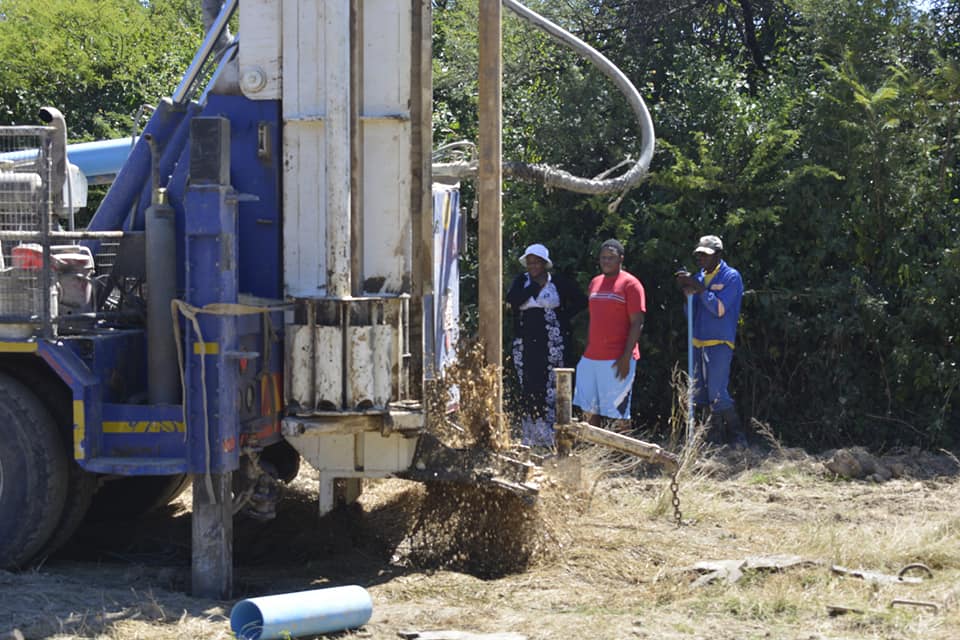
The Complete Borehole Drilling Process in Kenya
Drilling a borehole in Kenya is a comprehensive process that requires careful planning, adherence to regulations, and engagement with experienced professionals. Here’s a detailed guide to the steps involved:
1. Conducting a Hydrogeological Survey
Before drilling, it’s essential to assess the groundwater potential of the area. A hydrogeological survey, conducted by a licensed geologist, evaluates the subsurface conditions to determine the availability and quality of groundwater. This survey informs the optimal drilling site and depth, increasing the likelihood of a successful borehole.
2. Obtaining Necessary Permits and Licenses
Compliance with Kenyan water management regulations is crucial:
Water Resources Authority (WRA) Permit: After the hydrogeological survey, apply for a drilling permit from the WRA. This step ensures that the borehole aligns with sustainable water use practices.
Environmental Impact Assessment (EIA) and NEMA Approval: An EIA evaluates the potential environmental effects of the drilling project. The National Environment Management Authority (NEMA) reviews this assessment, and their approval is mandatory before proceeding.
Local County Permits: Depending on the location, additional permits from local authorities may be required to ensure compliance with regional regulations.
3. Site Assessment and Preparation
Evaluate the proposed drilling site for accessibility, geological conditions, and proximity to other water sources. Proper site assessment ensures the suitability of the location and facilitates a smooth drilling process.
4. Drilling Process
Engage a reputable drilling contractor equipped with the necessary expertise and equipment:
Drilling Operations: The contractor drills to the depth specified in the hydrogeological report, aiming to reach water-bearing formations. The depth and geological conditions influence the choice of drilling method, such as rotary or percussion drilling.
Casing Installation: After reaching the desired depth, casing pipes are installed to prevent the borehole walls from collapsing and to protect the water source from contamination.
5. Borehole Development and Cleaning
Post-drilling, the borehole undergoes development to remove debris and fine particles, enhancing water flow and quality. Techniques such as airlifting or surging are employed to achieve this.
6. Test Pumping
Conduct test pumping to determine the borehole’s yield and performance. This step involves pumping water at a controlled rate and monitoring the water level response, providing data on the sustainable yield and informing pump selection.
7. Water Quality Analysis
Collect water samples for chemical and bacteriological analysis to ensure the water meets health and safety standards for its intended use. This analysis is crucial for identifying any necessary water treatment measures.
8. Pump Installation and System Setup
Based on the test pumping results, select and install an appropriate pump. Design the water distribution system to suit your needs, ensuring efficiency and reliability. Proper installation is critical to maximize the borehole’s lifespan and functionality.
9. Documentation and Reporting
Compile all reports, permits, and test results into a comprehensive document. Submit necessary documentation to relevant authorities as proof of compliance with Kenyan regulations. Maintaining accurate records is essential for future reference and legal purposes.
10. Maintenance and Monitoring
Regular maintenance ensures the borehole operates optimally over the long term. Schedule periodic inspections, cleanings, and performance assessments. Monitoring water levels and quality helps in early detection of issues, preventing costly repairs and ensuring a continuous water supply.
Partner with MySolar Limited for Expert Borehole Solutions
Navigating the complexities of borehole drilling in Kenya requires expertise and adherence to regulatory standards. MySolar Limited offers end-to-end services, including:
Hydrogeological Surveys: Conducted by certified professionals to assess groundwater potential.
Permit Acquisition: Assistance in obtaining all necessary permits and licenses.
Professional Drilling Services: Utilizing advanced equipment and techniques for efficient drilling.
Pump Installation and Maintenance: Tailored solutions to meet your specific water needs.
For reliable and compliant borehole drilling services, contact MySolar Limited at +254 (0)706 895 933 or email sales@mysolar.co.ke.
Conclusion
Drilling a borehole in Kenya is a multifaceted process involving careful planning, adherence to legal requirements, and ongoing maintenance. By following the outlined steps and partnering with experienced professionals like MySolar Limited, you can secure a sustainable and dependable water source tailored to your needs.

Hello, i am a graduate student at Kenya Water Institute in Tharaka nithi, Chiakariga, and i was asking if your company MYSOLAR simplified solar solution if you offer internship for diploma water graduate students. Thank you looking forward for reply.